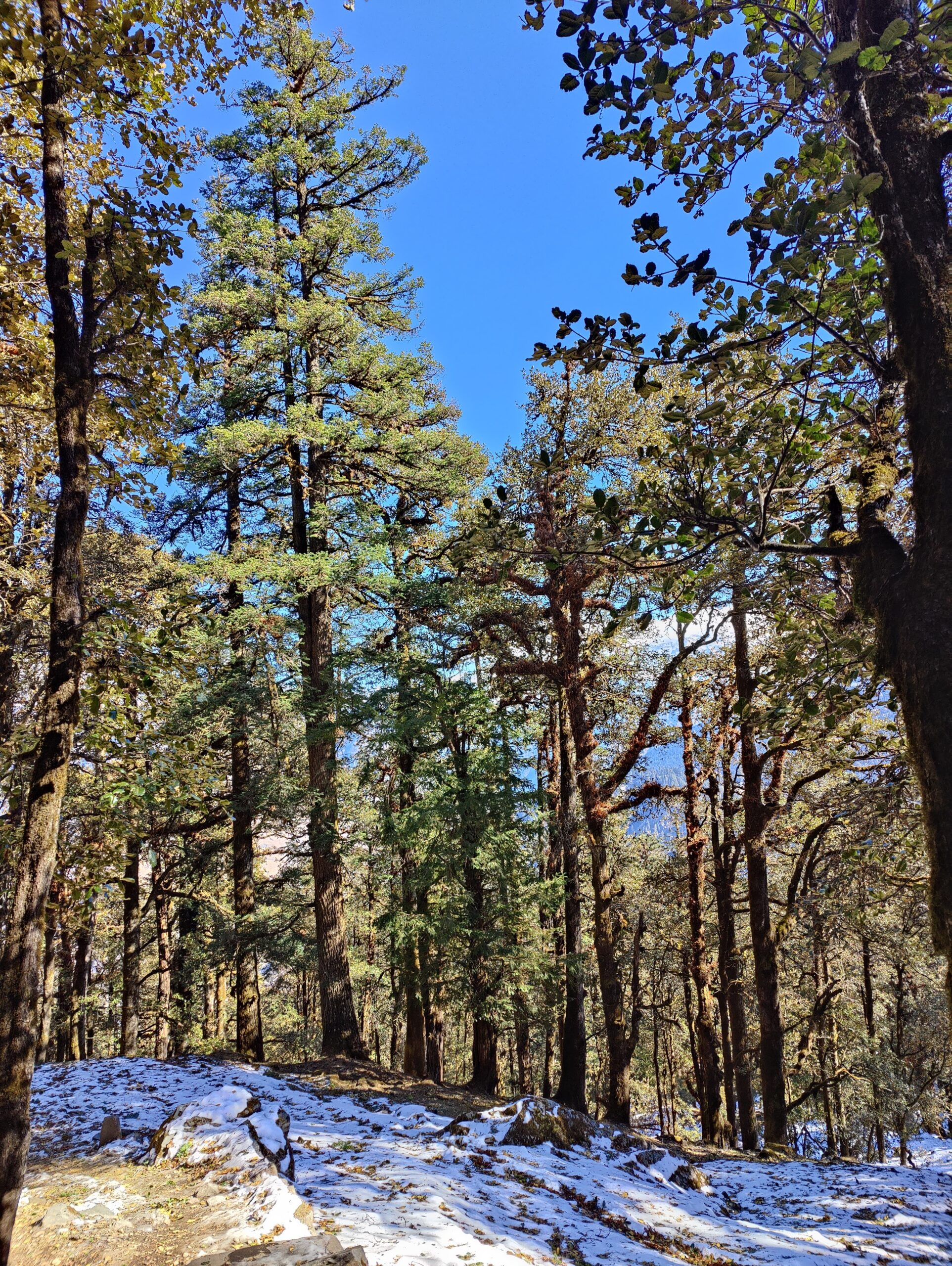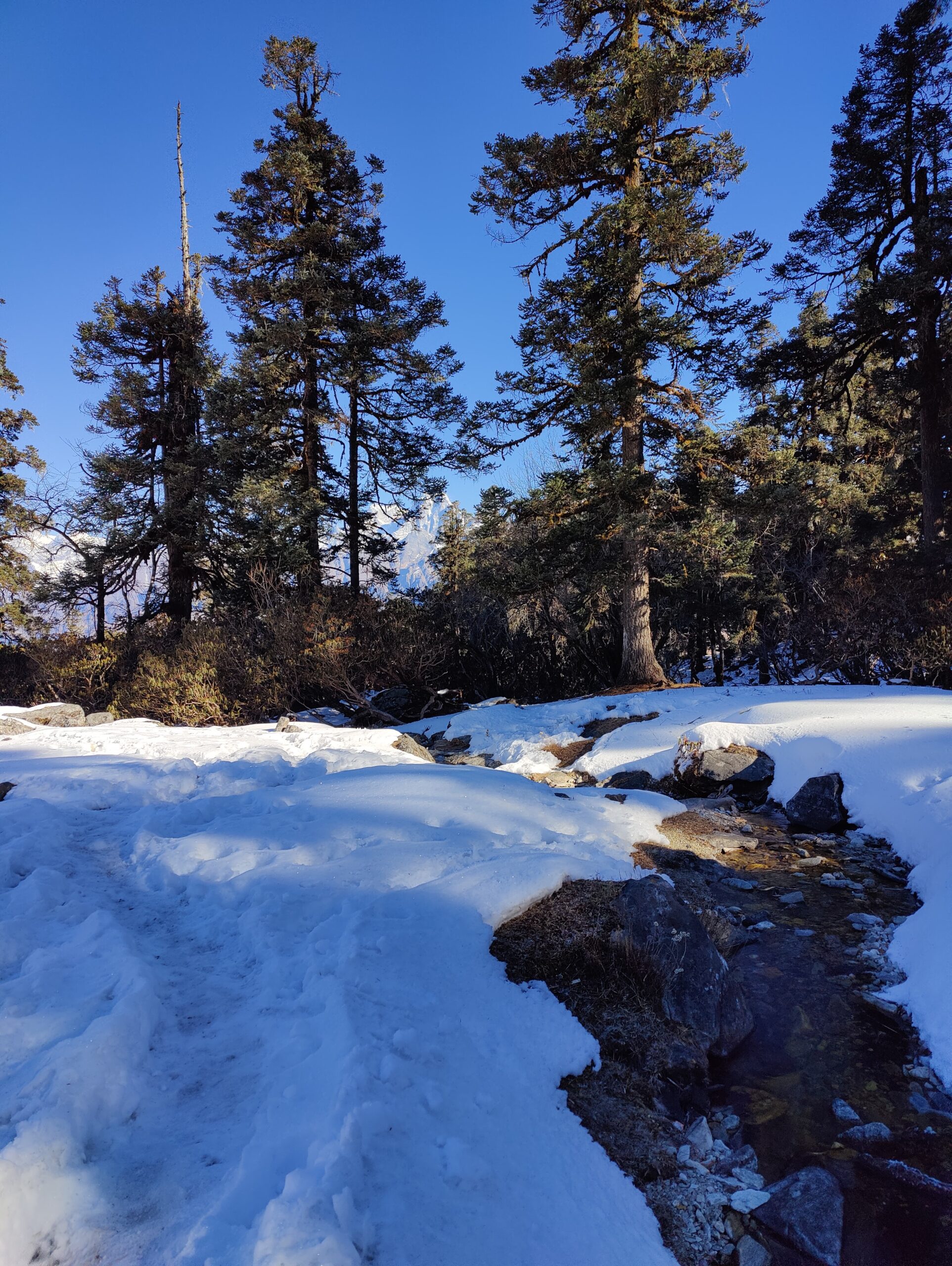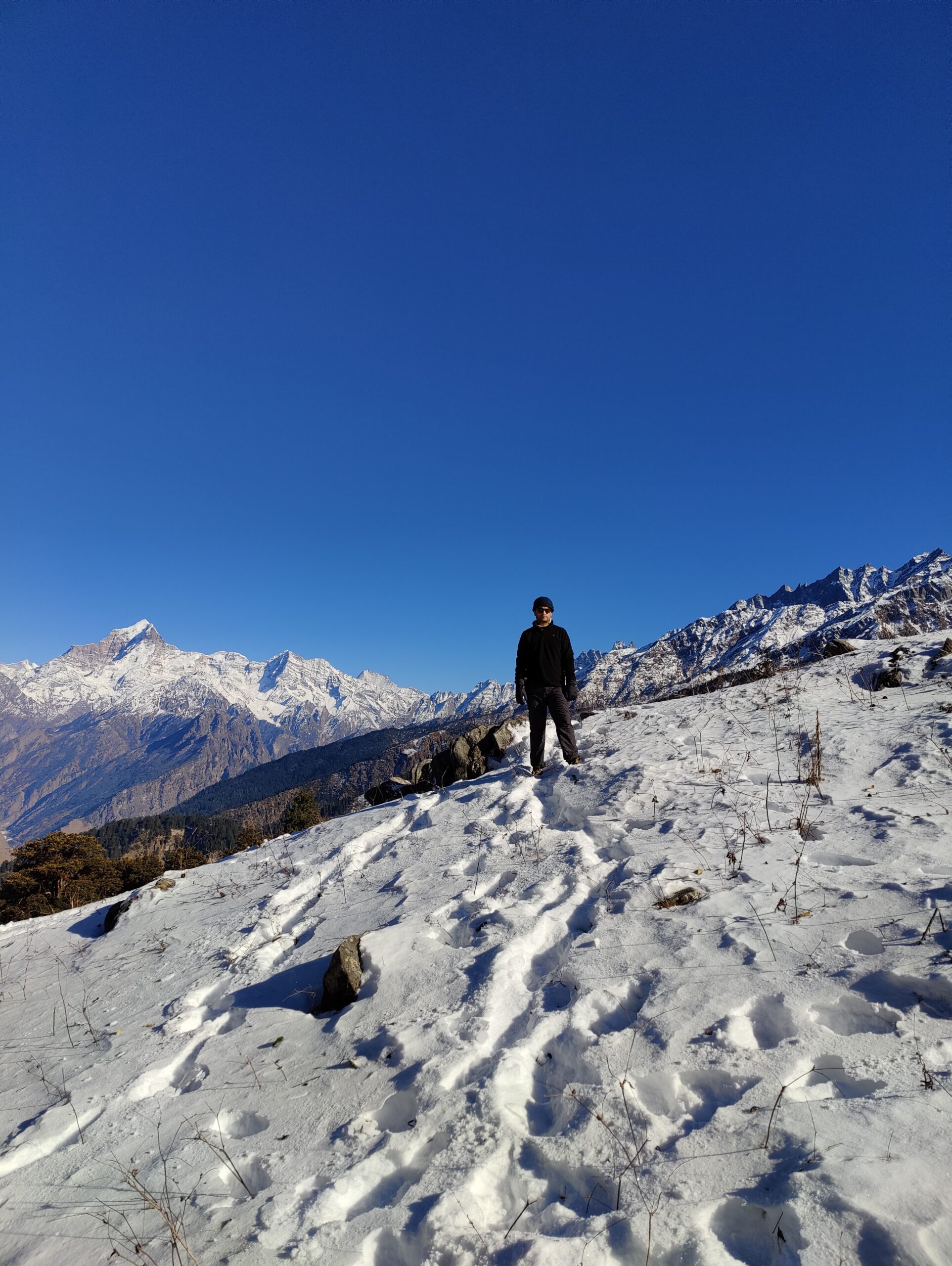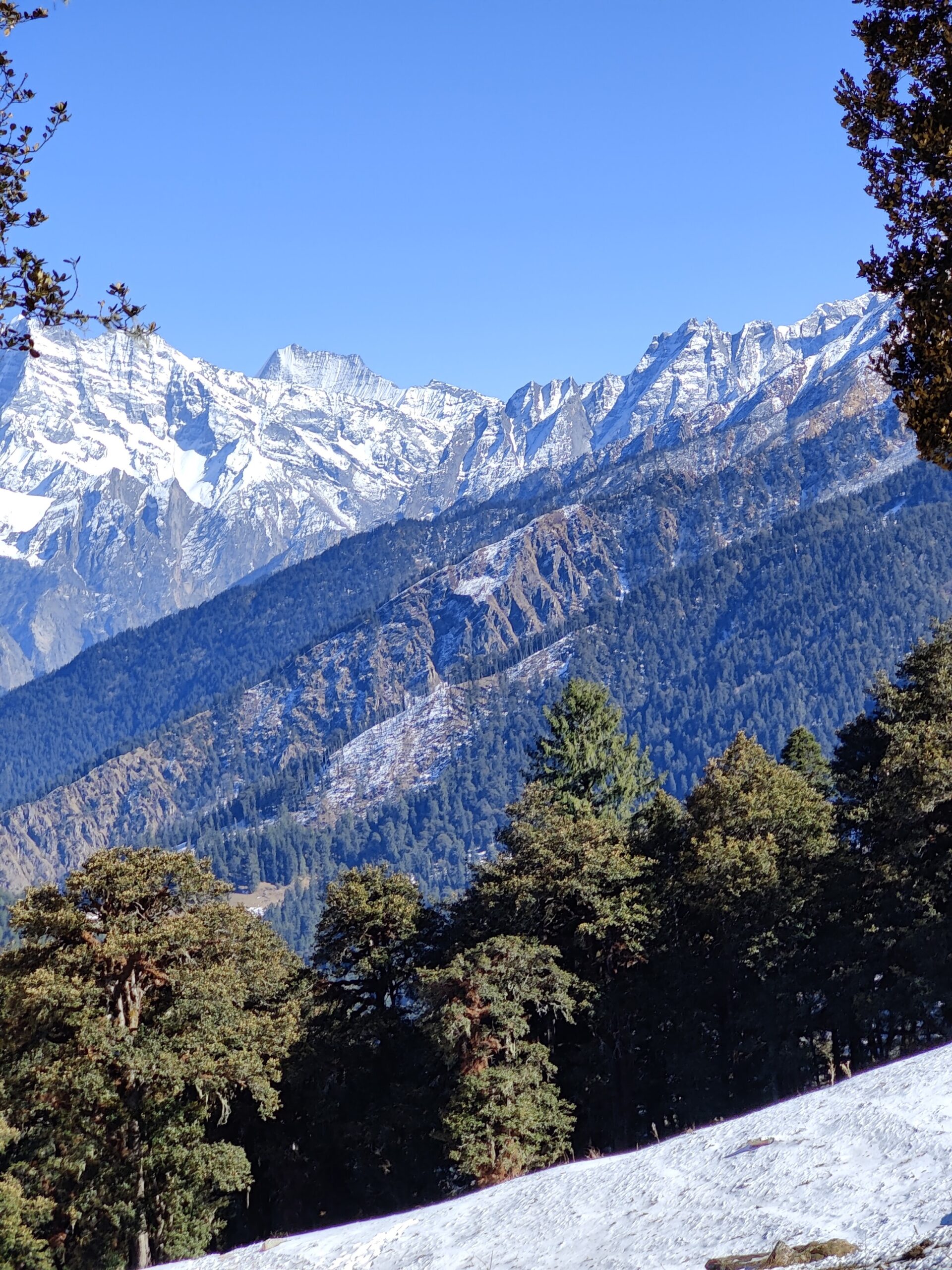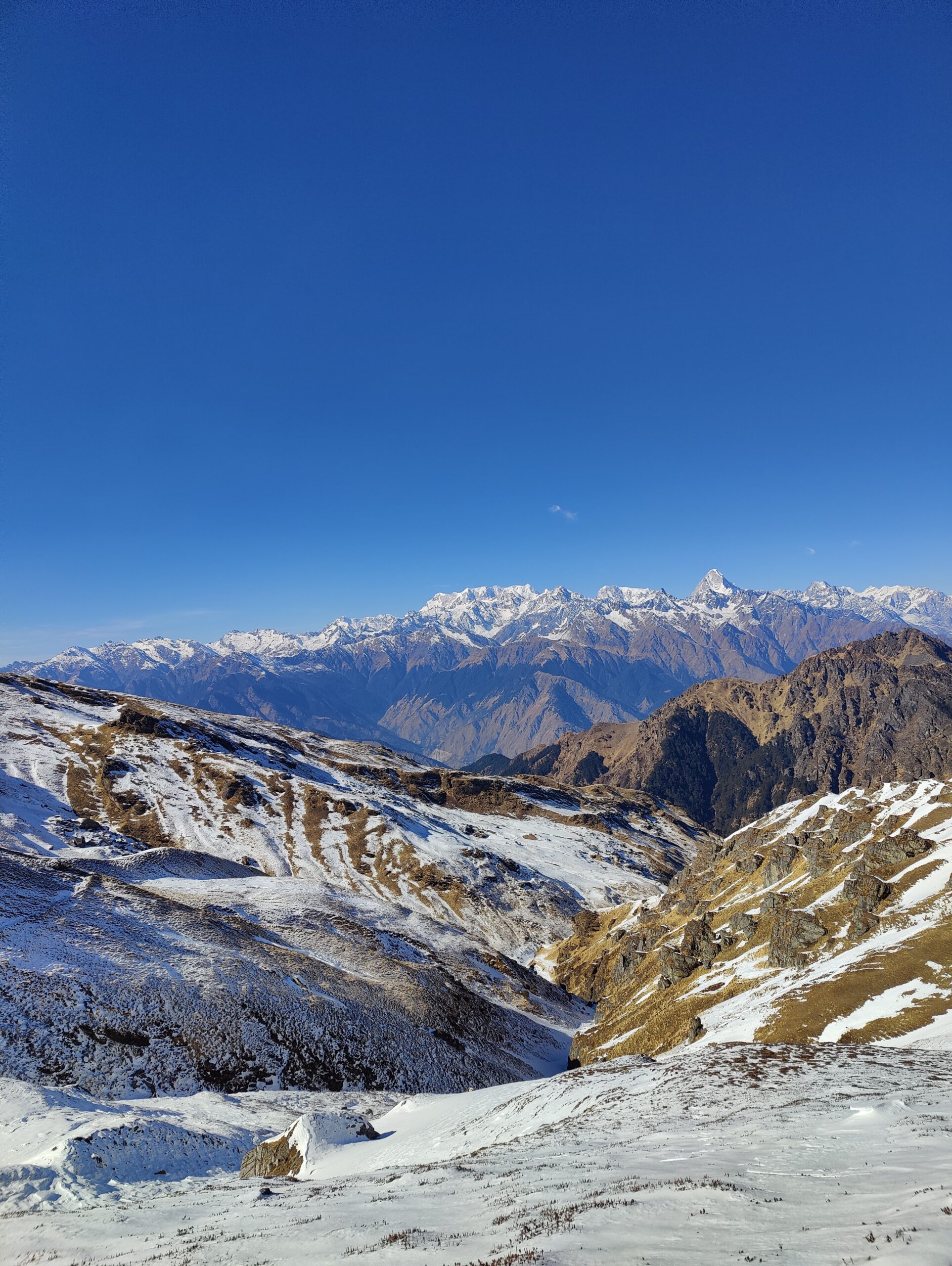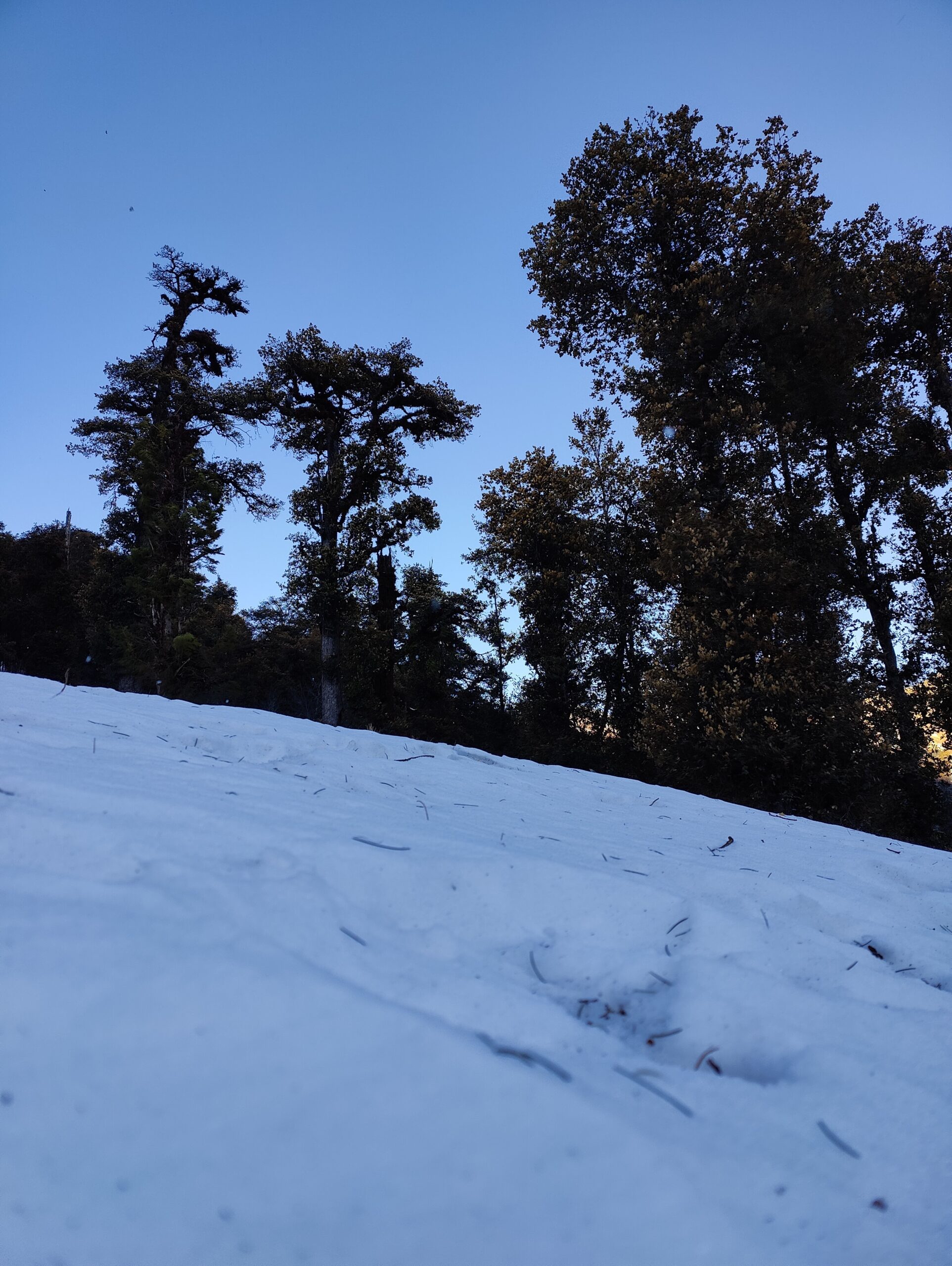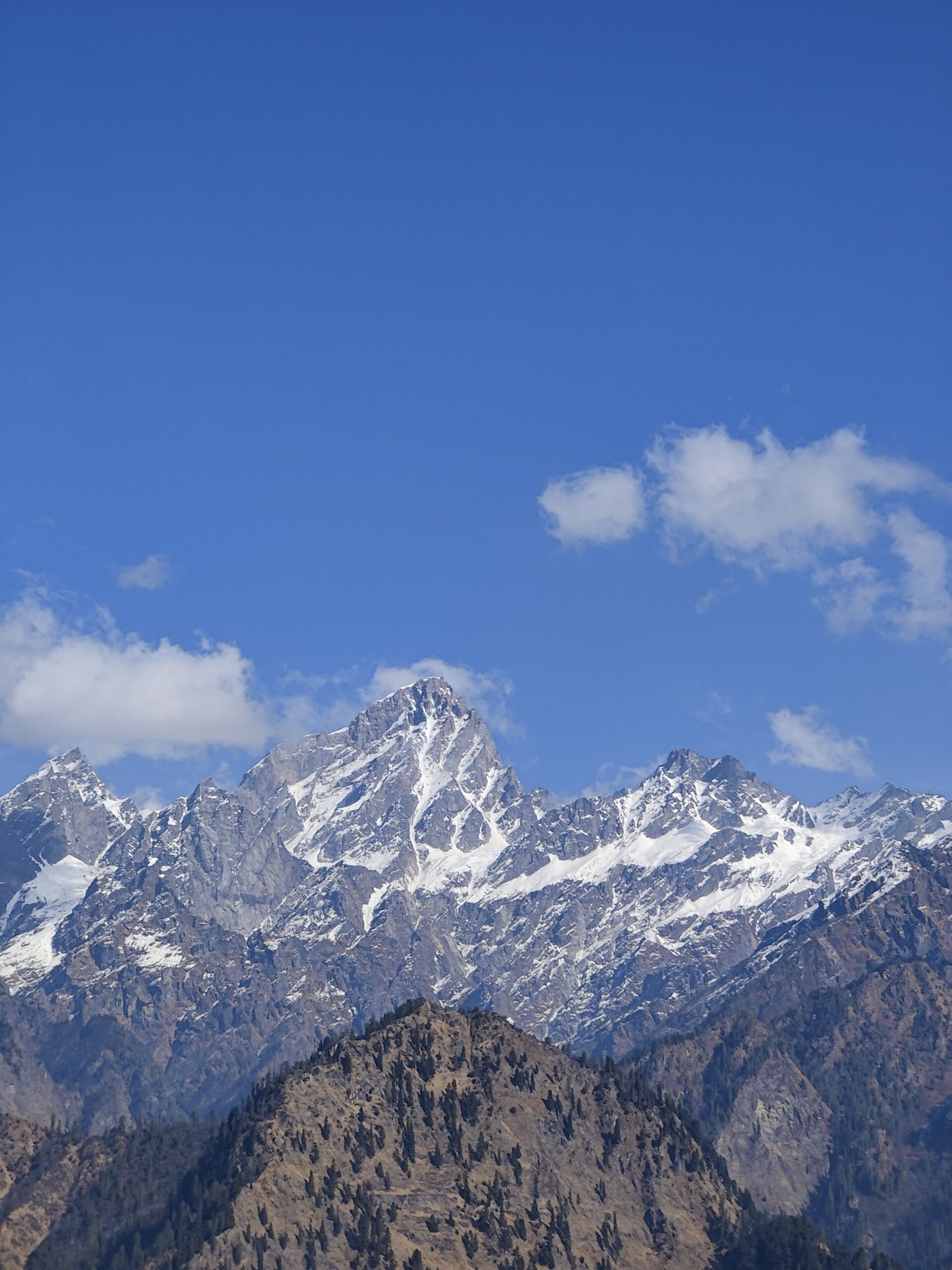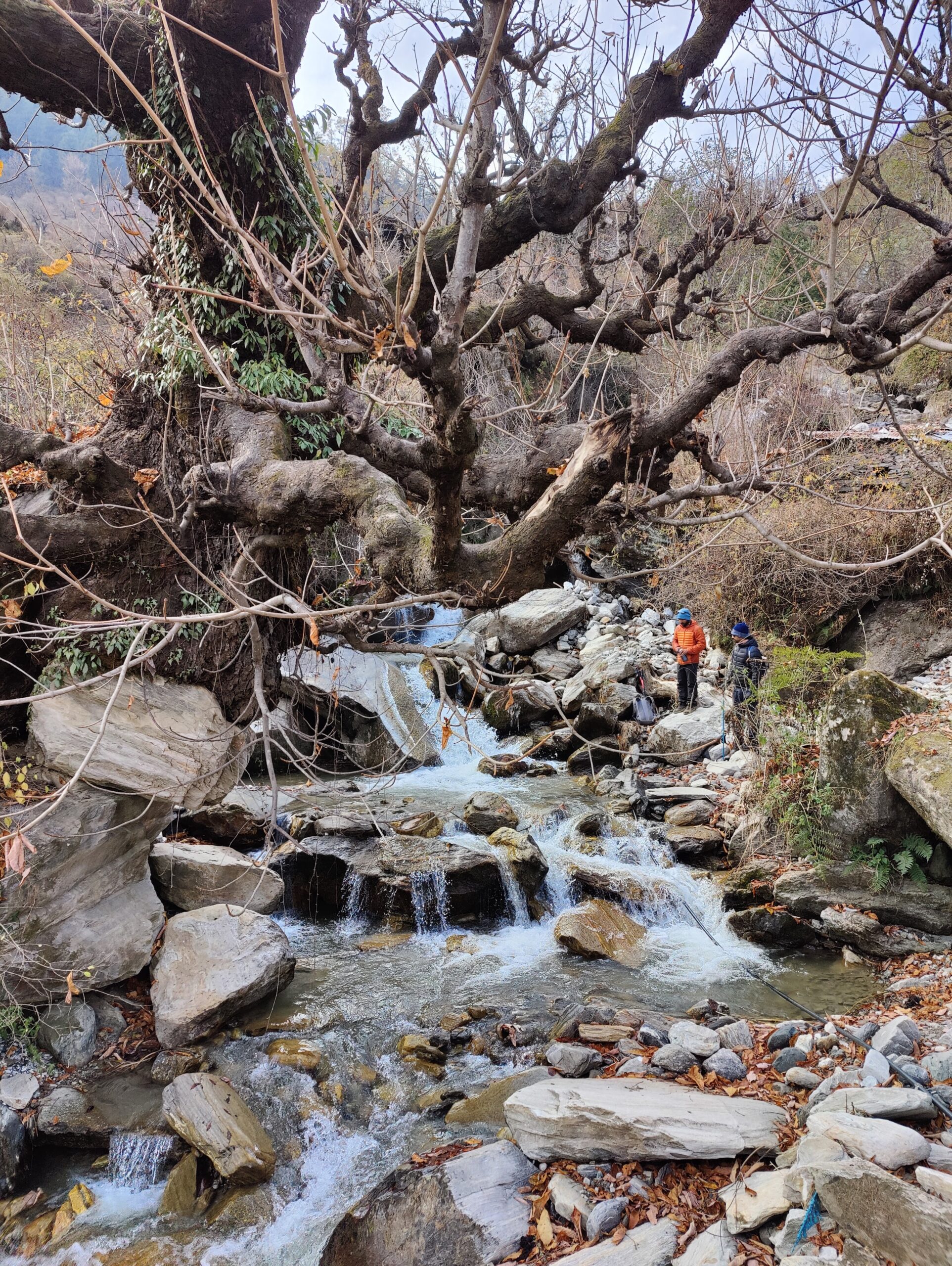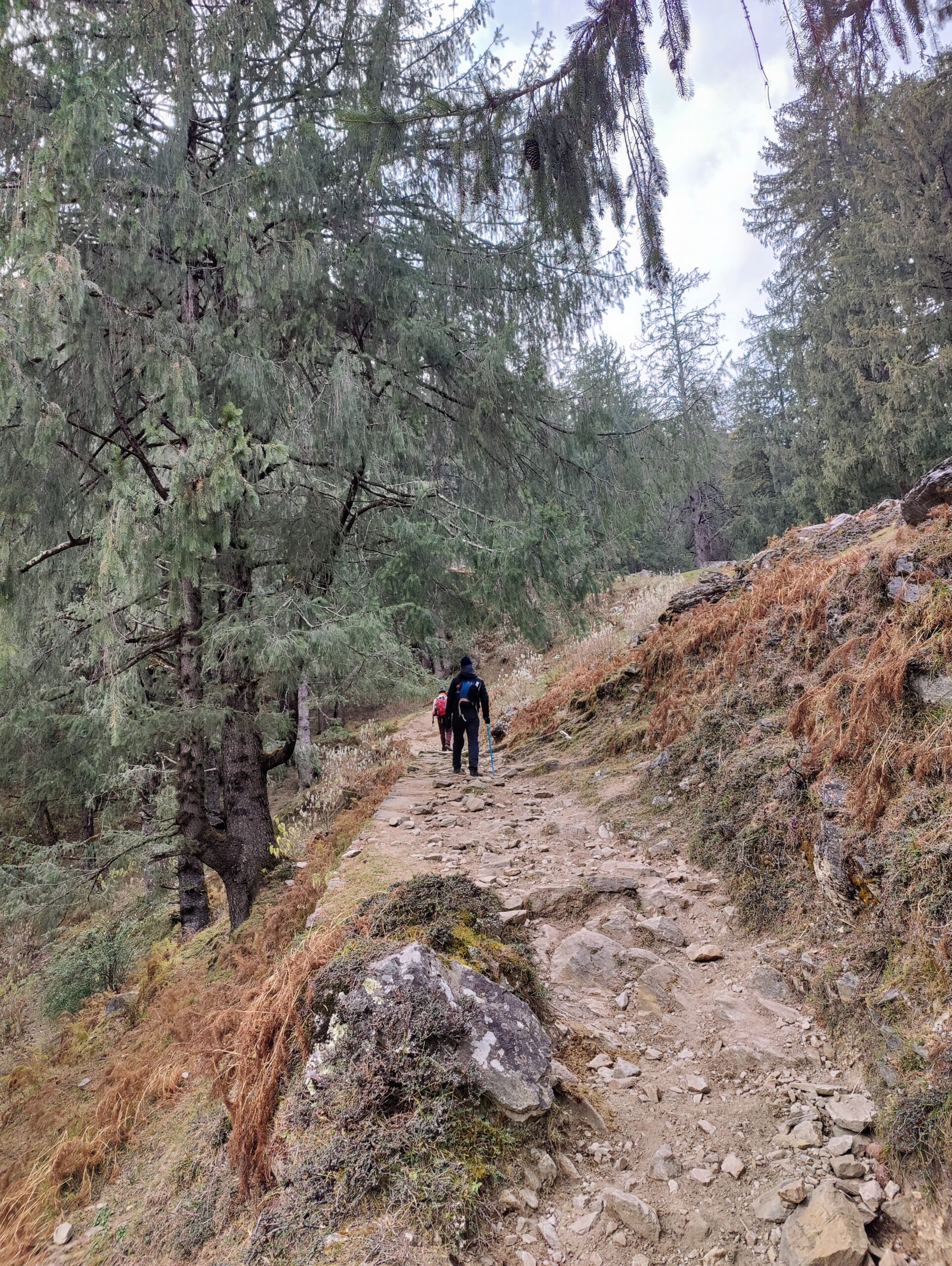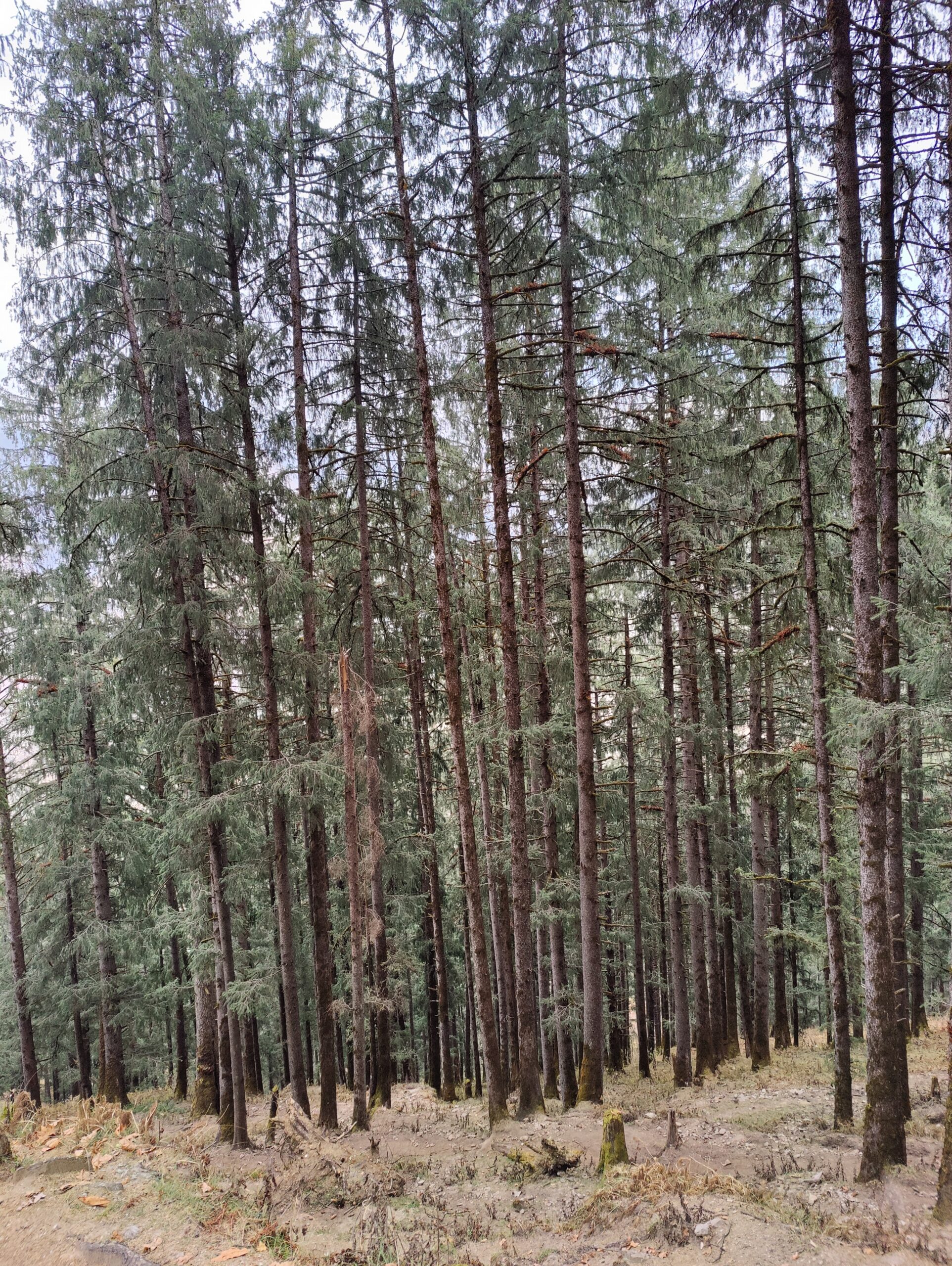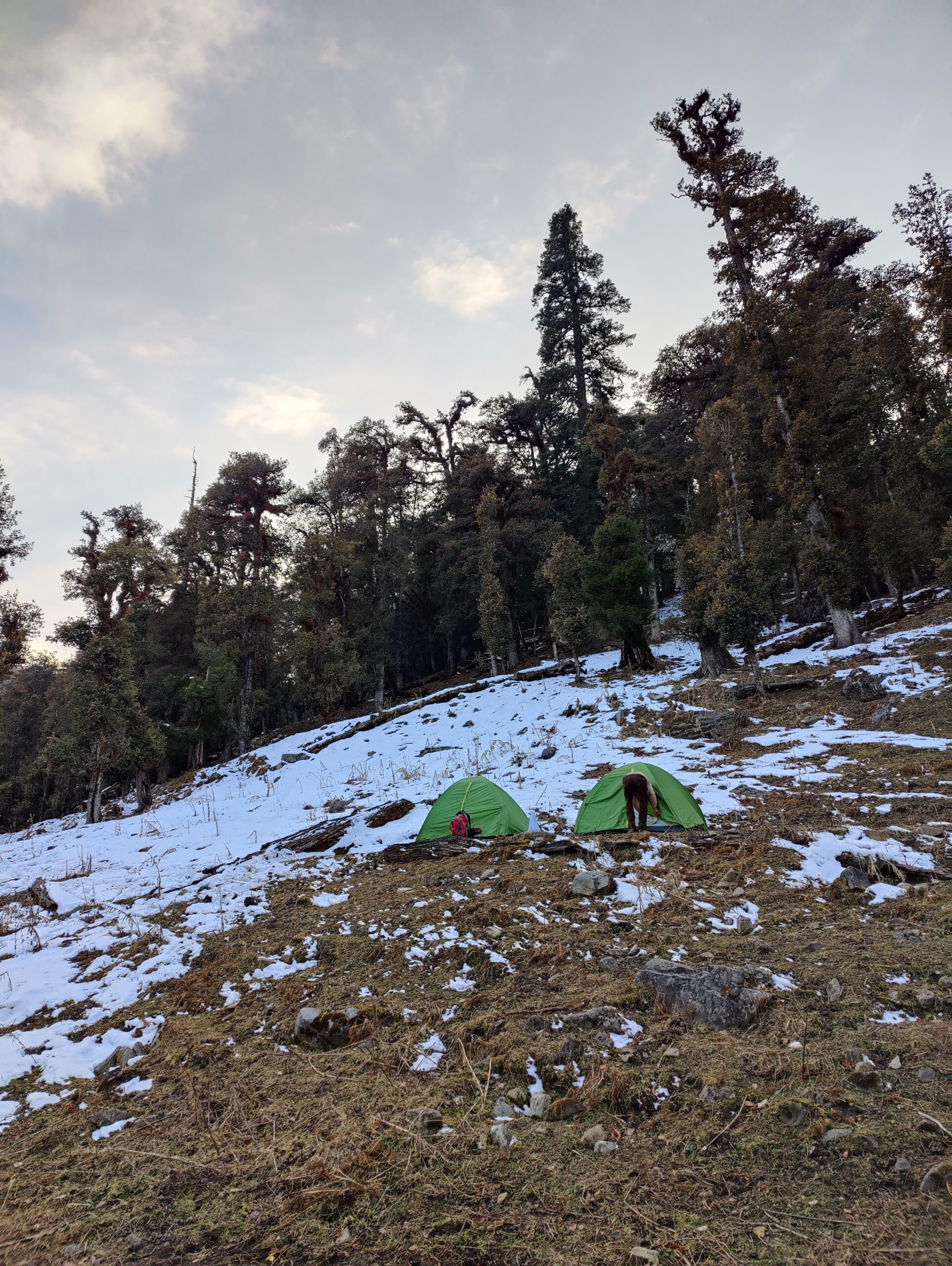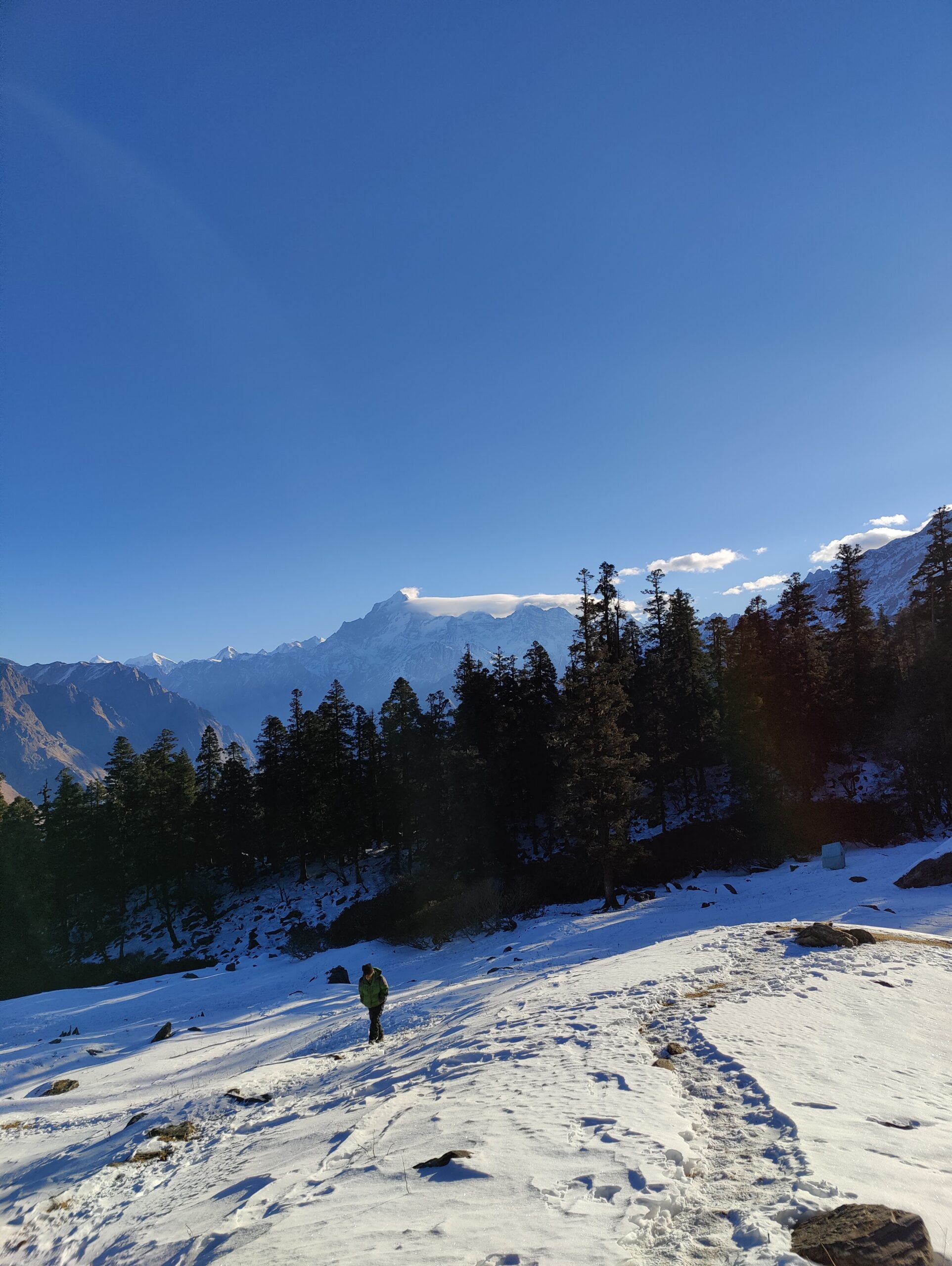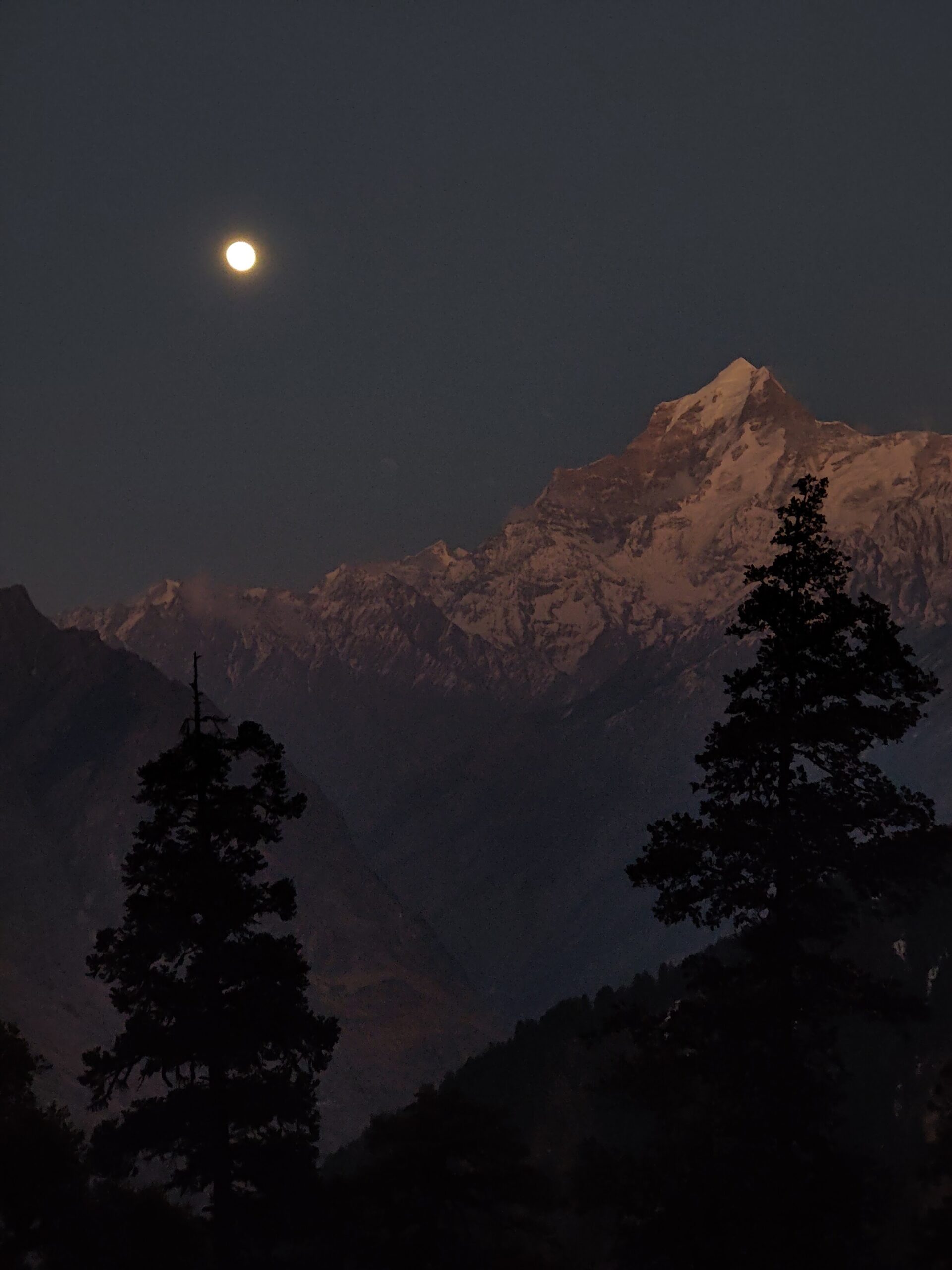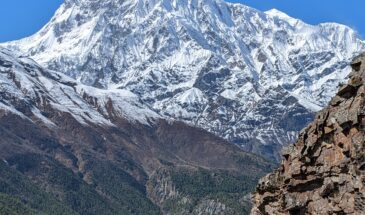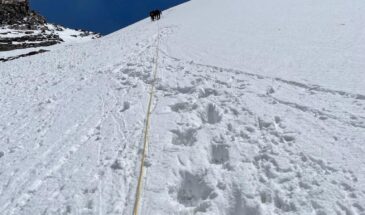- Trek Overview
- Itinerary
- Inclusions / Exclusions
- Gallery
- FAQ
In 1905, Lord Curzon (the then Viceroy of India) decided to explore the upper limits of the Indian Himalayas. Soon a party of explorers, porters and guides found themselves deep inside the Garhwal Himalayas exploring and mapping uncharted territories! It is here that they came across an area which captured the Lord’s imagination. Keen to know what the locals called the area, the lord demanded an audience. Soon a group of villagers found themselves before the ‘Gora Sahab’. ‘We don’t know what it’s called Sahab, No one goes there!’ replied the villagers upon inquiry. ‘You mean the area is virgin? What’s the word for Virgin In Hindi? Let’s name it that’. Thus the area was named Kuari Pass!
Kuari pass takes you through forests that open to green meadows, giving you spectacular views of Mt. Nanda Devi.
The Area
The trek begins from Joshimath in the Garhwal section of Uttrakhand. The Char Dham lies in Uttarakhand and is thus called Dev Bhoomi (Gods abode).This area is a major Hindu and Sikh tourist/pilgrim destination. The native language is Garhwali and the people are often referred as Pahadi (Mountain folk).
Expected weather
March – May
- Chances of rain/hail – less likely
- Snow on trail- Less likely
- Temperatures: Afternoon upto 25 degrees (May), Nights – Around -10 degrees (March) at higher camps
September-December
- Chances of rain/hail – Less likely
- Snow on trail – Possible snowfall in December
- Temperatures: Afternoon upto 20 degrees, Nights – Around -5 to -8 degrees (Dec) at higher camps
Day 1 - Drive from Rishikesh to Ghat passing through Karnaprayag, Rudraprayag, Devprayag
Distance - 211 km, Time - approximately 7hours.
Pick up for all trekkers will be from Rishikesh.
Day 2 - Ghat - Selu Bagar - Ghunni
Drive from Ghat to Selu Bagar
Distance - 7km, Time - approximately 30minutes
Walk from Selu Bagar to Ghunni
Overnight stay in camp
Day 3 - Trek from Ghunni - Jhinjhi Village (2075 mts) via Vinayak Pass (3080 mts)
Distance 13kms, Time - approximately 7hrs
Overnight stay in camp
Day 4 - Trek from Jhinjhi to Pana (2700 mts)
Distance - 9kms, Time - approximately 4hrs -
Trek from Jhinjhi to Pana, crossing river Birahi Ganga via a suspended bridge, passing through beautiful Rhododendron forest on way, reaching Pana village
Overnight stay in camp.
Day 5 - Trek from Pana to Dakhwani (3300 mts)
Distance 14kms, Time - approximately 5hrs
Trek from Pana to reach Dakhwani through forest, unto open green meadows, with a couple of ascends.
Overnight stay in camp.
Day 6 - Trek from Dakhwani to Kuari Pass (3800 mts) to Tali
Distance - 9kms, time - approximately 6hrs
Start from Dakhwani and reach Kuari Pass. After soaking in the spectacular views at Kuari pass continue trek to reach Tali.
Overnight stay in camp.
Day 7 - Trek from Tali to Auli (2909 mts). Drive to Rishikesh -
Walk from Tali to Auli. Upon reaching Auli drive to Rishikesh
Distance - 268kms, time - approximately 7hrs
Trip price includes:
- Complete Stay and Accommodation (Twin sharing basis) for the entire duration of the trek.
- Food from the first day to the last day of the trek.
- Rentals for all common gear provided to you like tent, sleeping bags, etc.
- Forest entry permission and camping charges.
- Guide and expertise charges.
Trip price excludes:
- 5% GST
- Meals or drinks purchased by participants during the travel or trek (example biscuits, fruits etc)
- Rentals for personal gear (Refer things to get section)
- Trek Insurance (Optional)
- Any extra government charges. (There aren’t any as of now)
- Flight/Train/Bus ticket till Rishikesh.
- Backpack offloading charges. You are expected to carry your own backpack. Trekkers unable to do so can opt for a porterage service at 350/day.
A certified trek leader, a guide, cook & porters will accompany you during the trek.
We’ve been organizing treks for over two years and have had many female trekkers trek with us. In fact, a lot of them come solo for treks. There has never been a complaint about the atmosphere of a trek, about other trekkers or our professionalism. They have all been kind enough to leave a review.
You will be sleeping in twos or threes in your tents in sleeping bags. The sleeping bags are snug and comfortable. If you are used to sleeping on a pillow, do carry an inflatable pillow or any small cushion that could provide you pillow-like comfort to sleep.
In all the camps where the accommodation is in guest houses/home stays, there will be proper toilets. On the day of camping, we will have toilet tents, the standard, most hygienic way of answering nature’s call. A deep pit will be dug in the ground and once you’re done, you will have to use a shovel & throw in some dirt from a mound of dirt kept nearby. These will be dry toilets with no water hence please carry tissue roll for the toilet tent (refrain from using wet wipes as they are not bio degradable), for the rest of the days, you can carry rolls as per your convenience.
On day 1 you may get bathing facilities at the home stay. Through the rest of the trek, there are no bathing facilities at campsites.
Tents do not have charging stations.
1. Good Sturdy Backpack: Prefer a trekking pack over a backpacking one. The size of the backpack depends upon the participant. Normally for a 7-9 day trek a 50-60 litre pack should suffice. 2. Shoes: Any Waterproof trek (not hike) shoe would be ideal. 3. Socks: 3 pair cottons and 3 pairs of woolens. 4. Trek pants (Ideally Water Resistant): Get two quick dry summer trek pants .On summit climb or a major altitude gain day you can replace one dry fit trek pant with Shell trekking pants. If you don’t have a trek pants you can replace it with Gym Track pants. 5. T shirt/Base layer: Get 3 T shirts/trekking base layer on the trek, one of which should be thick and full sleeve. Avoid cotton and prefer dry fit. 6. Fleece/ Sweater/Good quality Hoodie: Get 1 fleece jacket or sweater . Fleece is preferred over sweater or hoodie as it is lightweight and easy to carry. Sweaters and Jackets can be heavier than Fleece for the warmth they offer. 7. Down/ Padded Jacket – Down/Padded jacket (Upto -5 degrees ). If you don’t want to get a padded/Down jacket, get two fleece. Cotton track pants for camp – These are specifically for cold evenings at the campsite.This can be ignored if you are comfortable wearing your trekking pants in the camp. 8. Thermals : 1 pair. We wear thermals only upon reaching the campsite not while trekking. 9. Windproof Jacket: All rain proof can be used as Wind proofs. Required as an additional layer during trekking in windy conditions. Avoid if you have a rain proof jacket. 10. Rainwear: Option A – Rain set – One Waterproof jacket (3000 mm waterproofing), Rain proof pants and Bag cover Option two – Poncho that covers your body and bag completely. We ideally recommend Option 1 as poncho makes trekking difficult. 11. Woolen Cap/ Balaclava: (1) To cover your ears, head and neck.Get one woolen cap and one neck warmer or balaclava. 12. Neck Warmer/ Scarf (1): For evenings. Avoid if you are comfortable using a Balaclava. 13. Gloves: 2 gloves out of which 1 can be water proof and one woollen. The waterproof one has to ideally be padded and a size larger than you normally use. This is so that you can wear both your gloves together if required. 14. Suncap – 1 15. Sunglasses – 1 16. Toiletries – Also include sunscreen, moisturizer and lip-cream 17. Headlamp/Torch -1. Preferably headlamp. 18. Two water bottles (1 litre each) – One can be a thermos Flask. One can also get a hydration pack. 19. Camp shoes/Flip flops for camp Plastic covers for inside the backpack to keep your clothes dry 20. Daypack – Required if you have a summit days climb. Preferably one that can be compressed. 21. Documents: 2 passport sized photograph, Address and Photo proof (Driving License or Aadhaar card), Doctor’s Medical certificate saying that you are fit for the trek. We reserve the right to not take you on the trek if you fail to produce this. 22. Trekking pole
Meals will be provided by us. However you may carry snack items to much on like dry fruits, biscuits, chocolates, protein bars, or nuts.
Yes, you are ideally expected to carry your backpack. But you do have an option of offloading your bags on a mule for an additional cost. The cost will be 400/ per day per bag. One is expected to inform us about offloading 1 week prior to the trek
Yes, this trek is ideal for first timers.
6-8 kms slow jog OR 25 kms cycling. Pace is not important, consistency is important (non-stop jogging/running/cycling);;;;;Squats 35-40 x 3, Lunges 35-40 x 3, Calf raises 35-40 x 3;;;;;;;;;;;Climbing stairs 25-30 floors with bagpack
In case of cancellation If you cancel – – 60 days before the trip: we can process a complete refund minus minimum processing charges. – between 30-45 days before the trip: you will be refunded 50% of the trek fee. – within 30 days before trek starts: No refund. – and your spot is replaced in a full batch: we will process a complete refund after canceling minute operational charges. (For fixed departures only);;;;; Covid cancellation policy- 15 days before the start date of the trek – 100% refund or Wandering Boots Adventures voucher. 7 days before the start date of the trek – 50% refund or Wandering Boots Adventure voucher.

